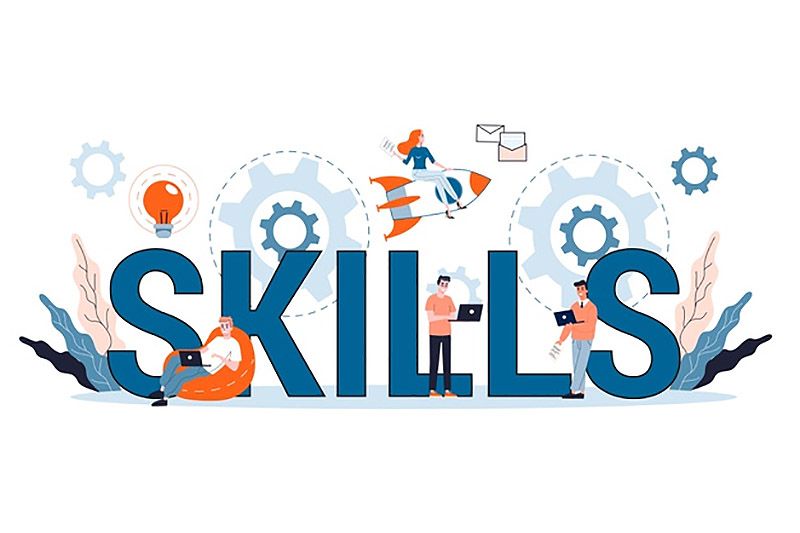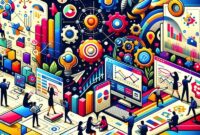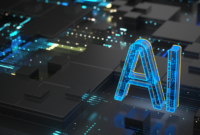The role of artificial intelligence in business continues to grow. Experts interviewed by Information Age talk about the professions that will determine innovation in the near future.
The use of AI today can be found in almost all areas of business – from employee tasks to customer service. This growing trend of end-to-end automation—boosted by the generative AI that has been capturing the imagination of organizations lately—will lead to the emergence of new technology jobs. Here we look at the new technology jobs that AI will require and the key skills needed for these professionals.
Professions and responsibilities
Here are the AI-related jobs and responsibilities that tech recruiting experts have identified as emerging in the next few years.
AI-focused contact center workforce
As AI becomes increasingly embedded in companies’ contact centers in the form of voice assistants and chatbots, among other tools, employees will need to learn how to best use these technologies and adjust processes accordingly. The most successful organizations are predicted to offer human-led customer service, augmented by AI for maximum personalization.
“Marketers and sales professionals will need to develop their skills in using AI tools as they expand,” says Rahul Kumar, managing director of Experis UK.
AI-powered contact center capabilities will enable employees to more effectively access and use interaction information, allowing them to better track customer needs.
Machine learning researchers and developers
“These are data scientists who study data, generate insights, and come up with algorithms that are then implemented into AI models,” says Kumar. — There are also MO developers – this is how they differ from researchers. They know how to create these algorithms, use them and maintain them.”
According to him, collectively, the professions of both ML researchers and developers are becoming increasingly in demand, from startups to key industry players. In the future, these positions look set to drive the evolution of modern data science.
“However, for this strategy to be effective, you still need developers to integrate the algorithms into your legacy stack. This will lead to their role being strengthened,” says Kumar.
NLP Researchers and Engineers
With interest in generative AI innovation rising following the public launch of OpenAI’s ChatGPT, jobs in natural language processing (NLP) are expected to grow in the near future.
According to Salvo Depetro, Barclay Simpson’s director of technology and change, his experience recruiting AI professionals since 2017 shows a natural evolution towards careers related to NLP, as well as computer vision.
“Over the last year or so, I’ve seen a growing demand for NLP researchers and engineers focused on text-to-speech or speech-to-text,” he says. “There has always been a demand for these roles over the last few years, but since ChatGPT entered the market, businesses have been focused on finding these high caliber data scientists.”
Engineers on tips
Also emerging from the generative AI boom are guidance engineers who specialize in creating instructions for chatbots that can improve the efficiency of everyday tasks in an organization. Because technology is susceptible to flaws, including bias and misinformation, these professionals must monitor and mitigate such technical difficulties by training algorithms. After all, generative AI tools are only as accurate as the data fed into them.
Required Skills
As the labor market develops, the requirements for employees of companies introducing innovations using AI also change. Listed below are the key skills that will be required of tech job seekers in this field.
Programming languages
Now and in the future, AI development workers will need to have extensive knowledge of a range of programming languages. While Python will likely be most widely used for testing and maintaining models, other programming tools are sure to come into play as well.
“If we look at the role of AI-focused data scientists, they not only have to know how to analyze data and look for any linear regression, but also have a good understanding of programming,” says Kumar. “The ideal technical skill set for developers right now includes knowledge of cloud technologies, statistical models, some Python to learn algorithms, and tools like R for data analytics and SQL.”
Other programming languages that may be useful in this area include Lisp, which specializes in supporting symbolic computation to aid in AI research and development, and Julia for data analysis and visualization tools, as well as numerical solutions.
MLOps skills
The MLOps (Machine Learning Operations) methodology is the basis for the development of ML algorithms. This area of technical processes performed in software development companies includes the design, development, and continuous testing of models.
“MLOps involves maintaining the infrastructure for ML or AI. This field requires a combination of different skills. You need not only knowledge of programming languages, but also CloudOps and DevSecOps skills,” says Kumar.
Soft skills
Given the potential societal implications of working with customer-facing AI solutions, including generative AI solutions, soft skills such as creativity, critical thinking and empathy will be vital to ensure models are accurate and valuable . No amount of technical skills can replace the need for skills related to the interpersonal and mental aspects of the job.
“While deep technical skills have been the basis of progress until today, they will not be the only skills that are important for progress in the future,” says Claire Hamilton, head of Capgemini UK talent acquisition. “Organizations must consider softer skills, personality strengths, and experience—all of which can bring drive and focus to an existing development team.”
Building the Best Team
Recruiting and retaining AI talent will ultimately require a combination of high-level technical and soft skills, as well as attracting employees from diverse demographic and sociographic backgrounds to ensure the diversity and inclusion needed for long-term innovation.
“As the next decade focuses on AI, we will see organizations expand and diversify their teams, relying on different skills to further advance AI,” says Hamilton.
He said deep technical roles such as software developers and engineers will continue to have a significant impact on the industry, but today’s skills alone will not be enough to scale the technology: “Convention breakers will also play an important role – you simply cannot have one without the other.” exist”.
“First determine what you want and what you need. From what we see in large organizations, such as financial institutions, they are initially looking for ML specialists. But then the talent hired ends up in roles that are broadly focused on software development, notes DePetro. “By misleading applicants, you end up frustrating people because that’s not the purpose of their day-to-day work.” You really need to be clear and specific about what you want and avoid creating a job title just because you want it to sound trendier.”





